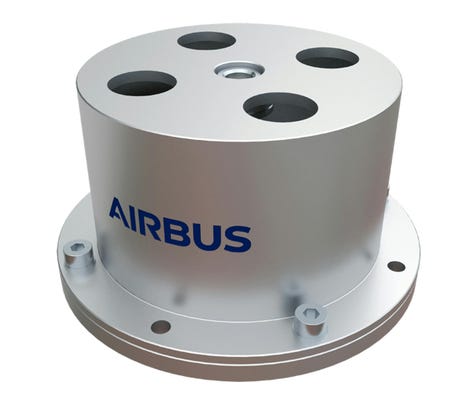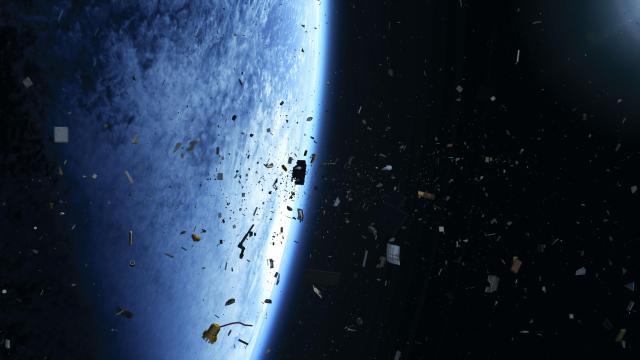Earth’s orbit can be a chaotic place, with defunct spacecraft darting aimlessly across the dark skies. In order to tackle the growing issue of space debris, Airbus created a new device designed to keep satellites from tumbling around after they’re no longer of use.
The device, aptly named Detumbler, launched on Saturday on board a Falcon 9 rocket from California’s Vandenberg Space Force Base. It was one 90 payloads to liftoff as part of SpaceX’s Transporter-9 mission.
Detumbler is a magnetic damping device that’s meant to be attached to a satellite that’s nearing the end of its life, according to Airbus. Weighing around 100 grams, Detumbler has a central rotor wheel and magnets that interact with the Earth’s magnetic field, which prevents unwanted motion when defunct satellites start to tumble. The device is designed to behave like a compass when the satellite is flying normally in its orbit, aligning with Earth’s magnetic field. If it begins to tumble, however, the movement of the rotor will trigger eddy currents (loops of electrical current within conductors induced by a changing magnetic field) and cause friction to slow down the motion.

The device was developed by Airbus in 2021 with support from the French Space Agency CNES under its Tech4SpaceCare initiative. The main purpose is to address the growing risk of space debris. Dead satellites tend to tumble in unpredictable ways due to orbital flight dynamics, posing a risk of crashing into another spacecraft or making uncontrolled reentries through Earth’s atmosphere.
The Detumbler, however, would make it easier to capture defunct satellites by future missions aimed at cleaning up space debris by keeping them on a more predictable path in Earth orbit. Airbus’ new device will be tested on the Exo-0 nanosatellite from EnduroSat in early 2024 with a series of detumbling demonstrations.
There are more than 27,000 pieces of orbital debris that are currently being tracked by the Department of Defense’s global Space Surveillance Network, with lots of smaller pieces also floating around undetected. That number is only expected to increase as the global space industry continues to grow, increasing the chances of collision right above our heads. Things have gotten so bad already that the target of a recently launched space debris clean-up mission was struck by space debris in August, highlighting just how important mitigation methods are needed today.
